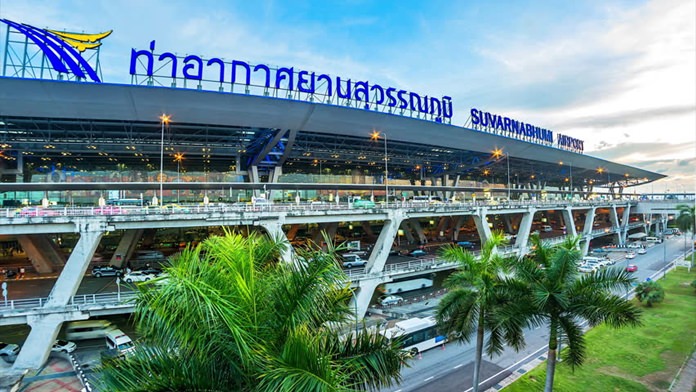Bangkok (AP) — A Saudi woman used social media to draw attention to her plight trying to flee her family, claiming that authorities in Thailand confiscated her passport and were holding her Sunday at an airport hotel room in Bangkok.
Rahaf Mohammed Alqunun, 18, began posting on Twitter late Saturday after Thai authorities stopped her in transit from Kuwait. She claims to have a visa for Australia, where she appears to have been planning to seek asylum.
On Twitter, she wrote of being in “real danger” if forced to return to her family under pressure from Saudi authorities. She also posted a copy of her passport to provide evidence of her identity.
For runaway Saudi women, fleeing can be a matter of life and death, and they are almost always doing so to escape male relatives.
Alqunun told Human Rights Watch she was fleeing abuse from her family, including beatings and death threats from her male relatives who forced her to remain in her room for six months for cutting her hair.
“I am giving my family 48 hours (to) either stop or I will publish everything that will incriminate them,” she wrote on Twitter.
The Associated Press reached Alqunun by telephone in her hotel room where she spoke briefly, saying that someone took her passport after telling her she could get a visa for Thailand. She said an hour later, several people came and told her they knew she had run away, that her family wants her and she should return to Saudi Arabia. She did not elaborate.
Alqunun told Human Rights Watch that she arrived at Suvarnabhumi Airport in Bangkok Saturday evening from Kuwait, but that a diplomat from the Saudi Embassy in Bangkok seized her passport to prevent her traveling to Australia. Saudi and Thai officials then told her she would be returned to Kuwait on Monday, where her father and brother are awaiting her.
Saudi Arabia’s charge d’affaires in Bangkok Abdullah al-Shuaibi denied Saudi authorities were involved in any way.
He was quoted in Saudi press saying that Alqunun was stopped by Thai authorities because she did not appear to have a return ticket, a hotel reservation or itinerary to show she was a tourist.
He said the Saudi Embassy has no authority to stop anyone at the airport and that this decision rests with Thai officials.
“She was stopped by airport authorities because she violated Thai laws,” he was quoted as saying in Sabq, a state-aligned Saudi news website.
“The embassy is only monitoring the situation,” al-Shuaibi said.
Alqunun’s plight mirrors that of other Saudi women who have tried to flee abusive or restrictive family conditions.
A Saudi activist familiar with other cases of females who’ve runaway said often the women are young, inexperienced and unprepared for the obstacles and risks involved in seeking asylum when they attempt to flee.
Speaking on condition of anonymity for fear of repercussion, the activist said there have been instances where Saudi women runaways were stopped by authorities in Hong Kong or the Philippines en route to Australia or New Zealand. In some cases, Saudi authorities have been involved in forcing women to return to their families and in other cases local authorities suspect the women of seeking asylum and deport them.
Alqunun appears to have attempted to flee while on a family visit to Kuwait.
Saudi Arabia requires that a woman have the consent of a male relative — usually a father or husband — to obtain a passport, travel abroad or marry.
Saudi women runaways, however, have increasingly turned to social media to amplify their calls for help.
In 2017, Dina Lasloom triggered a firestorm online when she was stopped en-route to Australia where she planned to seek asylum. She was forced to return to Saudi Arabia and was not publicly heard from again, according to activists tracking her whereabouts.





